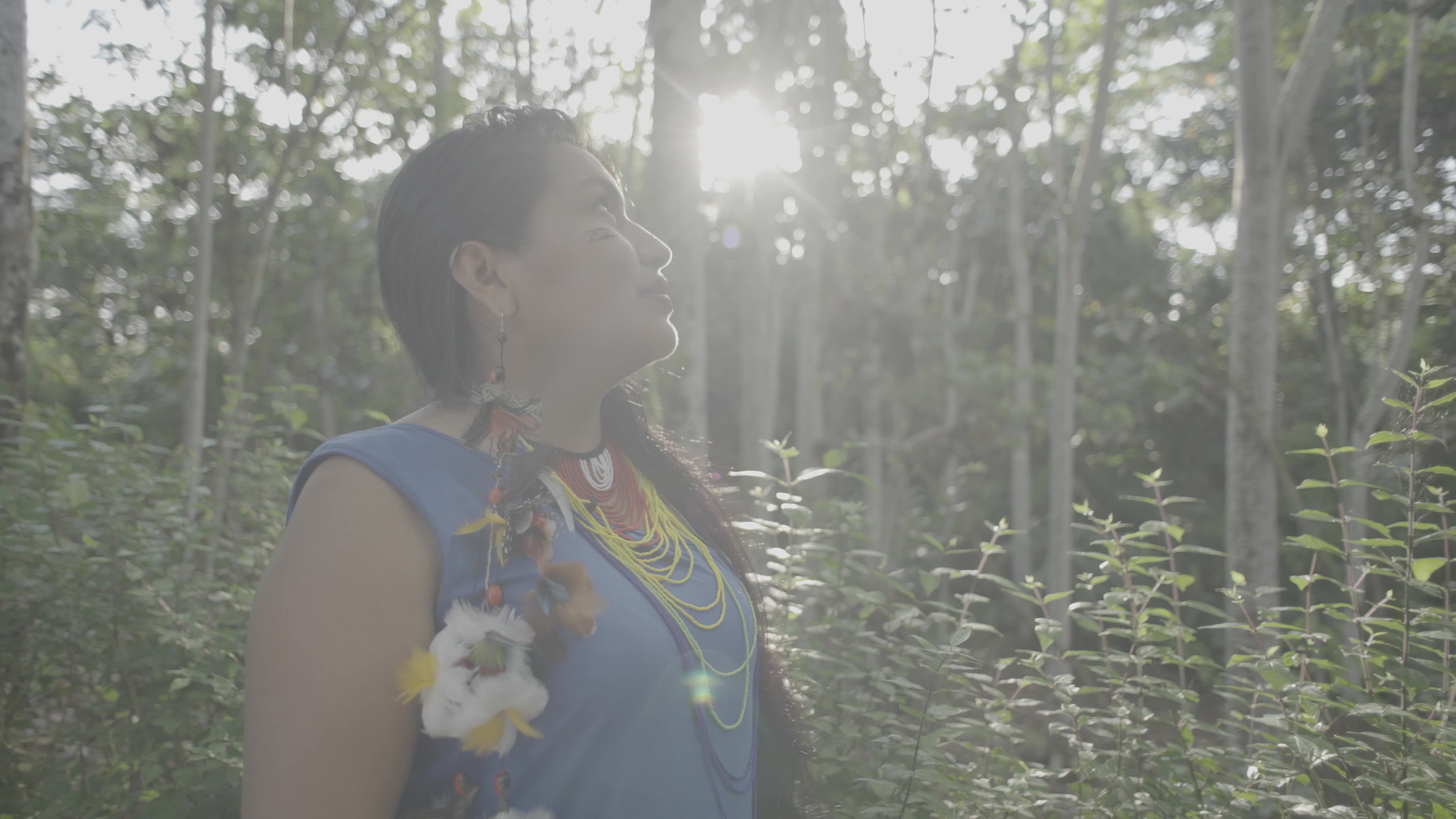“Women reclaim their role in forest protection”

An interview with Shuar leader Irma Tsahuanda

Irma Tsahuanda is a Shuar leader from the Yamanunka community in Ecuador, serving as treasurer and administrator of the Nua Kakaram (Brave Women) Association. Committed to preserving her Indigenous heritage, Irma focuses on forest conservation and protecting ancestral knowledge. Through her work, she supports Shuar women to restore traditional practices, develop sustainable crafts, and contribute economically to their families. Irma plays a key role in promoting women’s leadership within and beyond her community – and ensuring the next generations continue to protect their land and culture.

What would life be like here if the forest no longer existed?
Without trees, life in the community would be unrecognizable. It would be sad and desolate. No birds would arrive in the mornings; the air would be silent without their songs. The sun would shine too brightly, scorching everything, and the land would feel lifeless. The forest is more than trees, the forest serves as the Earth's lungs – it is life, providing shade, shelter, and a deep connection to our culture.

Which practices does your community follow to care for the land and forests?
As Shuar women of Yamanunka, we have taken an active role in restoring the forest and protecting our traditional environment. We focus on reforesting endemic plants and preserving our ancestral seeds, which are vital to our culture and crafts. These plants are used for healing, for food, and for creating the traditional items that reflect who we are. Most importantly, we pass this knowledge on to our children and encourage them to continue this legacy for future generations. We show them which plants are useful for medicine, which ones provide shade, and how every plant has its purpose. In this way, we protect not only our forest but also our identity.

How are women taking the lead in conservation efforts in your community?
We women have always had a close connection to the land. Our mothers and grandmothers taught us the uses of each plant for traditional medicines and daily life. Unfortunately, as outsiders arrived in our region, they brought practices that led to deforestation and overexploitation of resources. That disrupted the balance we had with nature. However, we women are now reclaiming our role as protectors of the forest. We are leading the way in conservation efforts to protect our land, restore traditional practices, and ensure a sustainable future for the community. As such, we are committed to strengthening our cultural heritage, fostering harmony between people and nature, and preserving our legacy for future generations.

What is Yamanunka’s role and responsibility in protecting and preserving the environment?
As Shuar people, it is our responsibility to care for the forest, the rivers, and the land. These natural elements are essential to our lives. We see ourselves as guardians of the forest – caretakers of the soil and water that sustain us. Protecting the environment is not just a duty; it’s part of who we are.

Have you seen a change in the community?
Yes, there has been an important change. We’ve worked hard to pass on conservation practices to our children, our siblings, and even to our mothers. In the past, we often cut down trees to build our homes without thinking about the long-term impact. Now, we are more aware of how to balance our needs with the health of the environment. This change has been especially important for the younger generation, who are more conscious of sustainability and eager to continue our efforts.

What role has PROAmazonía played in this change?
PROAmazonía has played a vital role in our transformation. It has empowered us as women by teaching us how to develop bio-enterprises, such as handicrafts and gastronomy, while also raising our environmental awareness. Through their workshops, we’ve learned new and advanced techniques to improve our work and care for the environment at the same time. One of the most important outcomes has been the development of our Life Plan. This plan serves as a guide for our community, outlining our priorities and projects to protect the forest and strengthen our traditions. It gives us a clear direction and helps us focus on sustainable development.

Do women in your community also play a financial role in supporting the family?
Yes, we contribute significantly. In the past, women stayed at home, taking care of the children and waiting for their husbands to bring money home. That’s no longer the case. Through our handicrafts, we generate income for our families. When we sell a piece for $20, it’s not just money – it’s a symbol of our hard work and creativity. This financial contribution makes us feel useful, proud, and fulfilled. The work also inspires us to keep going. Seeing people from outside the community admire and purchase our crafts fills us with joy and motivates us to continue. It helps us realize that our skills are valuable and that we have the power to provide for our families while keeping our culture alive.

What does Yamanunka mean?
Yamanunka means “new land.” True to its name, our community is working to restore and protect the forest. We are committed to ending the indiscriminate logging that once threatened our environment. Our focus is now on conservation, ensuring that our forest remains healthy and vibrant for future generations.

This interview was recorded by UNDP Climate, with support from the UN-REDD Programme showcasing PROAmazonia’s work on the territorial life plans in the Yamanunka territories of Ecuador.
UNDP Climate & Forests systematically promotes social equity, including the rights, knowledge, and inclusion of Indigenous Peoples and local communities, to ensure forest solutions to climate change contribute meaningfully to delivering on the NDCs and advancing the SDGs.
The views expressed in this interview are solely those of the interviewee and do not necessarily reflect the official policies or positions of UNDP.
Author: Roxana Auhagen, UNDP Climate and Forests
